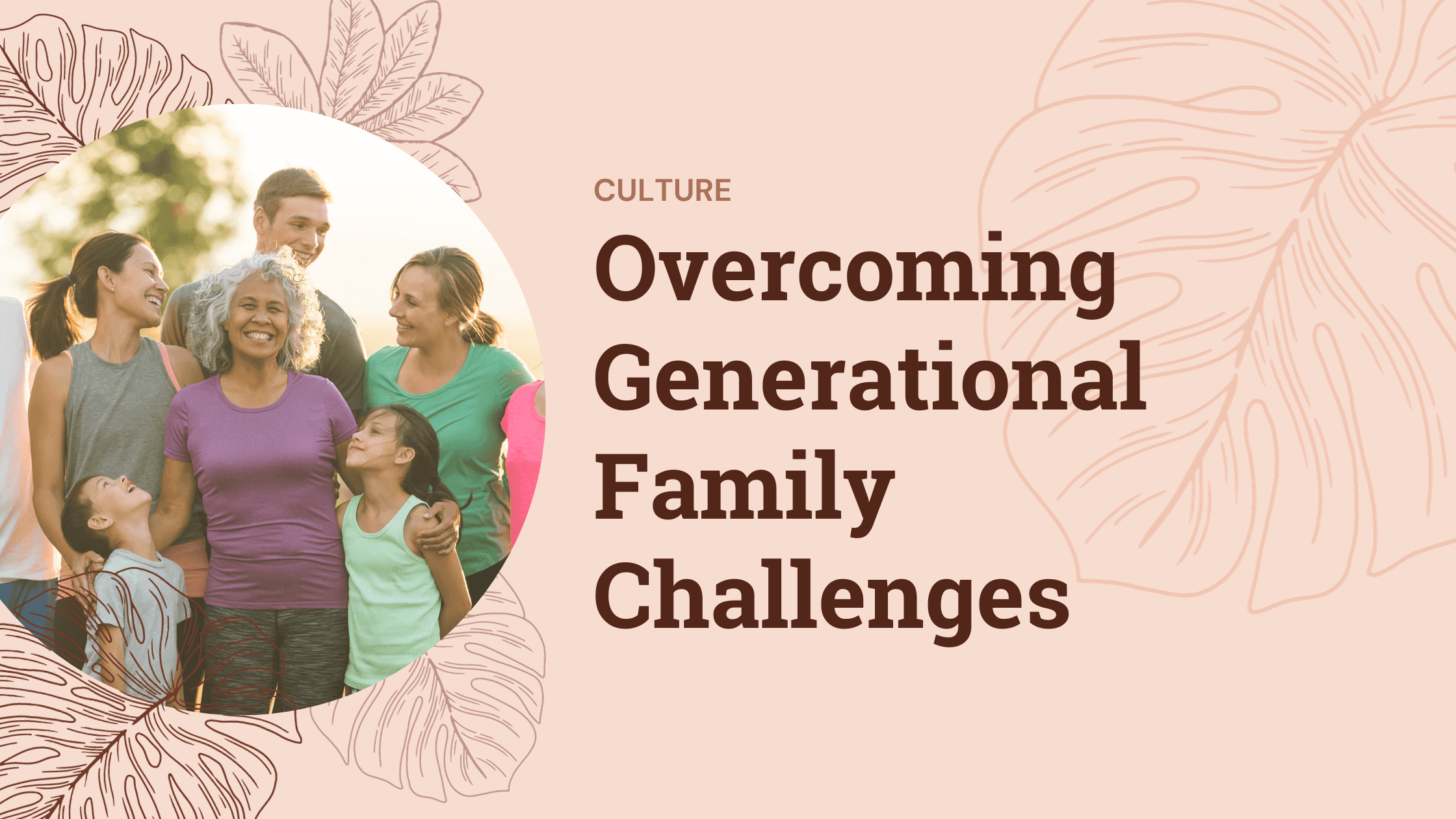Table of Contents
Generational family problems in the Philippines refer to recurring issues and conflicts that pass down from one generation to another within families. These difficulties often manifest as patterns of behavior, attitudes, or emotional responses that are considered unhealthy or dysfunctional.
These issues are not uncommon in Filipino society, where family is considered the cornerstone of life. The tight-knit structure typically perpetuates both positive and negative traits across generations.
Addressing these generational family problems is crucial for breaking the cycle of dysfunction and fostering healthier family dynamics. It’s not just about individual well-being, but also about creating a more harmonious society.
Understanding the Root Causes
Before diving into the common problems that plague Filipino families, it’s essential to understand where these issues stem from.
Historical and Cultural Factors
The Philippines has a rich but complex history that includes colonial rule and various cultural influences. These historical events have shaped family values and expectations, sometimes contributing to generational issues.
The Role of Tradition and Expectations
Filipino culture places a high value on family traditions and societal expectations. While these can be sources of strength, they can also perpetuate toxic behaviors and attitudes.
Impact on Family Dynamics
The weight of history and tradition can significantly impact family dynamics, creating a cycle of issues that are passed down through generations. This can manifest as communication breakdowns, emotional neglect, or even abuse.
Common Family Problems

Now that we’ve explored the root causes, let’s look at some of the prevalent issues that Filipino families often face.
Discussion of Prevalent Issues
Some of the most common generational family problems in the Philippines include financial dependency, emotional manipulation, and the perpetuation of gender roles. These issues typically stem from deeply ingrained beliefs and can be difficult to address.
Case Studies and Real-Life Examples
For instance, the story of the Santos family illustrates how financial dependency can cripple individual growth. The parents, reliant on remittances from their eldest son working abroad, failed to plan for their retirement, creating a cycle of dependency that now involves their grandchildren.
Effects on Individuals and Families
The impact of these issues is far-reaching, affecting not only the individuals involved but also the family as a whole. Emotional and psychological scars can last a lifetime, impacting one’s ability to form healthy relationships and make sound decisions.
By understanding the root causes and common issues, we can take steps to break the cycle and foster healthier family dynamics. Stay tuned for the next part of this series, where we’ll explore strategies for change and healing.
Breaking the Cycle
The good news is that cycles can be broken. Let’s explore some strategies that can help Filipino families address generational problems and foster healthier relationships.
A. Strategies for Addressing Generational Problems
Step 1: Acknowledge the Issue
The first step in breaking the cycle is acknowledging that a problem exists. This can be challenging, especially when certain behaviors have been normalized over generations.
Step 2: Educate Yourself
Understanding the root causes of these generational issues can provide valuable insights. Read books, attend seminars, or consult experts to gain a more profound understanding.
Step 3: Involve the Family
It’s a family issue, so the family should be part of the solution. Open dialogue can be a powerful tool for change.
Expert Tip:
Consider using a neutral third party to facilitate these discussions, especially if they tend to become heated or unproductive.
B. Communication and Therapy Options
Family Therapy
Family therapy can provide a safe space for everyone to express their feelings and concerns. Therapists can offer professional guidance on how to resolve conflicts and improve relationships.
Couples Counseling
Every so often, the issues start with the parents. Couples counseling can help resolve marital conflicts that may be affecting the entire family.
Individual Counseling
Individual therapy can help family members deal with personal issues that contribute to family problems.
C. Nurturing Healthier Family Relationships
Quality Time
Spending quality time together can help strengthen bonds and improve communication.
Set Boundaries
Healthy boundaries allow family members to interact in a more positive and respectful manner.
Positive Reinforcement
Encourage good behavior and open communication through positive reinforcement like verbal affirmations or rewards.
Success Stories
There’s light at the end of the tunnel. Let’s look at some inspiring stories of Filipino families who have successfully broken the cycle of generational problems.
A. Stories of Families Who Have Overcome These Challenges
The Reyes family, for example, managed to break free from a cycle of financial dependency through education and open communication. They now run a successful family business that involves multiple generations in various roles.
B. Lessons Learned and Positive Outcomes
The key takeaway from these success stories is that change is possible. It requires effort, commitment, and sometimes professional help, but the results are worth it.
C. Hope for the Future
These stories serve as a beacon of hope, proving that with the right tools and mindset, families can break free from generational problems and build a healthier future.
Conclusion
We’ve explored the root causes, common issues, and potential solutions for generational family problems in the Philippines.
Breaking the cycle is an ongoing journey that requires continuous effort from all family members.
If you’re dealing with generational family problems, remember that you’re not alone, and it’s never too late to make a change.








No Comment! Be the first one.